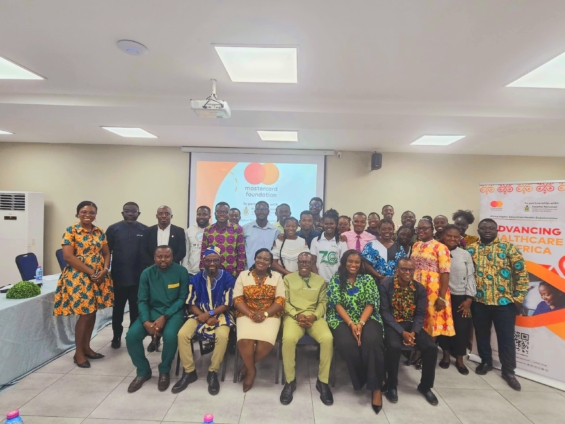Family businesses often have unique dynamics where personal and professional relationships are intertwined.
Understanding how to navigate these dynamics is crucial for maintaining both business success and family harmony.
The Africa Higher Education Health Collaborative, KNUST in partnership with Mastercard Foundation has therefore organized a workshop on conflict resolution and family business management for MSc Health Entrepreneurship students.
The seminar carried out by the Health Ecosystem pillar led by Dr Joseph Owusu seeks to train and prepare a new generation of talented professionals with the broad sets of skills required to drive equitable and inclusive growth in Ghana’s health sector.
The students have already been trained on Intellectual Property, regulatory issues and legal aspects of health business.
Legal practitioners, Mr. Kwabena Sarkodie Aboagye, and Mr. Richard Obeng Mensah and corporate development strategist, Mrs. Mary Asante Asamoah, led the session.
Mr. Richard Obeng Mensah suggested family businesses should resort to Alternative Dispute Resolution (ADR) mechanisms over courtroom litigation to maintain peace.
“Family businesses should adopt more Alternative dispute Resolution Mechanisms such as arbitration, mediation and negotiation rather than courtroom litigation.
“In order to avoid the hostility that comes with litigation, and also preserve the cordial relationship among family members; the alternative mechanisms to litigation should be used,” he recommended.
The Africa Higher Education Health Collaborative in partnership with the Mastercard Foundation seeks to advance healthcare in Africa through two other pillars: Health Employment and Health Entrepreneurship.
The Health Entrepreneurship pillar aims to develop an entrepreneurial mindset and culture that supports entrepreneurs to create meaningful innovations and employment opportunities in the health sector.
The Health Employment pillar also aims to expand and improve current capacities to train primary healthcare workers.
Latest Stories
-
NPA is pro-business in the exercise of its mandate – Dr. Abdul-Hamid
11 mins -
Asantehene dispels speculations of friction between Manhyia Palace and NDC
17 mins -
Rock City Hotel leads road safety awareness campaign in Nkawkaw
20 mins -
Ursula Owusu-Ekuful’s projects in Ablekuma West constituency
31 mins -
Why has South Korea’s president suddenly declared martial law?
32 mins -
National Cathedral: We don’t manage public funds with the bible – Domelevo
50 mins -
CHAG commissions SafeCare Hub to transform healthcare delivery in Ghana
54 mins -
Hold my bissap: On marriage, dating, and the single sage
1 hour -
All that glitters is not gold – Damien D. Smith on finances of Hollywood stars
1 hour -
Blackout Concert: Lyrical Joe billed for Korley Black’s event in Somanya
1 hour -
Interior Minister warns against violence in Bawku ahead of elections
1 hour -
Holders of restructured debts to receive their monies in 2 years – Dr. Amin Adam
1 hour -
I could’ve transformed Ghana to Dubai with the borrowed $11.5bn – Mahama to Ofori-Atta
2 hours -
Vice President Bawumia commissions E-Gates at Kotoka International Airport
2 hours -
Young Rob wins Best Collaboration Video at RBE Awards 2024
2 hours

